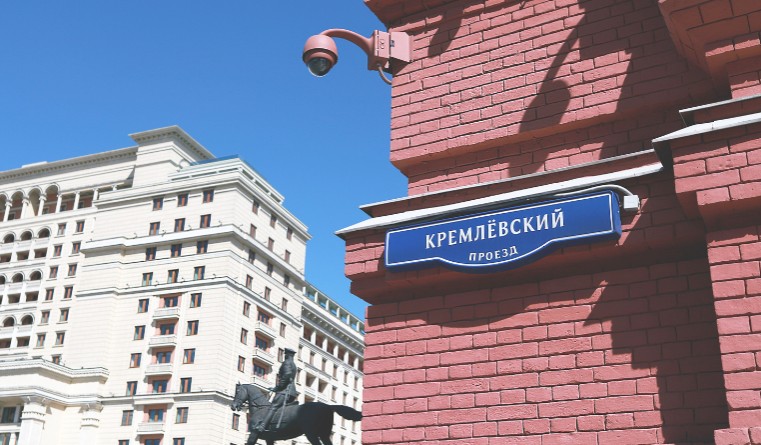Protection of the right to a commercial designation
06 April 2025

Article 1225 of the Civil Code of the Russian Federation defines a commercial designation as one of the means of individualization. In accordance with Paragraph 1 of Article 1538 of the Civil Code, legal entities that carry out entrepreneurial activities, as well as individual entrepreneurs, may use commercial designations that are not firm names and are not subject to mandatory inclusion in the constituent documents and the Unified State Register of Legal Entities for the individualization of their trade, industrial and other enterprises.
The Civil Code understands an enterprise as a property complex used to carry out entrepreneurial activities.
Based on the above, the main difference between a commercial designation and a company name is that a commercial designation is not necessarily indicated in the constituent documents.
The exclusive right to a commercial designation is the exclusive right of the right holder to use a commercial designation in any way that does not contradict the law, including by:
-
Indications on signs;
-
Indications on letterheads;
-
Indications on invoices and other documentation;
-
Indications in announcements and advertisements;
-
Indications on goods and their packaging; and
-
Instructions on the internet.
Criteria for recognizing a designation as a commercial designation
According to the current legislation, not every designation can be considered a commercial designation. Paragraph 1 of Article 1539 of the Civil Code establishes two criteria for recognizing a designation as a commercial designation:
1) Such a designation must have sufficient distinguishing features; and
2) The use of the designation by the right holder for the individualization of his enterprise is known within a certain territory.
At the same time, the right to a commercial designation is protected provided that the use of the designation by the right holder for the individualization of his enterprise is known within a certain territory after December 31, 2007 (regardless of when the use of the designation began).
If the right holder has the right to a commercial designation, then other persons are not allowed to use a commercial designation that can mislead as to the ownership of the enterprise by a certain person, in particular, a designation confusingly similar to a trade name, trademark or commercial designation protected by an exclusive right belonging to another person who has the corresponding exclusive right earlier.
In addition, Paragraphs 177 and 178 of the Resolution of the Plenum of the Supreme Court of the Russian Federation dated 23.04.2019 No 10 On the Application of Part Four of the Civil Code of the Russian Federation establish that the right to a commercial designation does not arise before the start of actual use designation for the individualization of the enterprise.
The burden of proof of the use of a commercial designation lies with the right holder. Based on the above rules of law, the following circumstances are included in the subject of proof under the claim for protection of the right to a commercial designation: the fact that the plaintiff owns the said right and the fact that the defendant violated it by using a designation similar to the commercial designation, if as a result of such use there is a possibility of confusion.
Proof of the right to a commercial designation
To establish whether a person has exclusive rights to a commercial designation, it is necessary to establish the following:
1) Whether the disputed designation exists;
2) Whether it is used by a specific person to individualize a particular enterprise;
3) At what point did such use begin, and whether its use continues; and
4) Whether the commercial designation has sufficient distinguishing features and whether there is appropriate evidence of the acquisition of fame by the commercial designation in a certain territory.
According to the position expressed in the decision of the Moscow Regional Office of the Federal Antimonopoly Service of Russia dated 06.06.2023 in case No 050/01/15-1727/2022: “A commercial designation should be understood as a symbol used by a business entity in order to individualize its enterprise as a property complex, subject to legal protection by virtue of its fame in a certain territory, and not requiring registration in a special register. The purpose of using a commercial designation is to individualize entrepreneurial activity as a whole through the identification of the enterprise through the creation of a unique, original, well-known image (symbol) of a particular business entity in a certain territory.”
The law does not establish any requirements for the composition of the elements of the property complex for the purpose of classifying it as an enterprise. In this case, the entire set of the above conditions must be established. If the existence of at least one of these conditions is not proved, the exclusive right to a commercial designation cannot be considered to have arisen.
According to the provisions of Article 1539 of the Civil Code, the exclusive right to a commercial designation arises by virtue of the well-known designation in a certain territory (subject, city, district, street), that is, the commercial designation has a local character.
Proving the fact of infringement of the exclusive right to a commercial designation
The fact of infringement of the exclusive right to the commercial designation of the right holder must be confirmed by the following set of facts:
1) A person uses an identical or confusingly similar designation for the individualization of the enterprise;
2) There is a similar field of activity; and
3) The territory of use of the disputed designation must coincide or have common boundaries.
Liability for illegal violation of the exclusive right to a commercial designation
By virtue of the provisions of Clause 1 of Article 1252 of the Civil Code, the protection of exclusive rights to the results of intellectual activity and to the means of individualization is carried out, in particular, by filing a claim in the manner provided for by this code:
1) On the recognition of a right. To a person who denies or otherwise does not recognize the right, thereby violating the interests of the right holder;
2) On the suppression of actions that violate the right or create a threat of its violation. To the person committing such actions or making the necessary preparations for them, as well as to other persons who can stop such actions;
3) On compensation for losses. Against a person who illegally used the result of intellectual activity or means of individualization without entering into an agreement with the right holder (non-contractual use) or otherwise violated his exclusive right and caused damage to him, including those who violated his right to remuneration provided for by Article 1245, Paragraph 3 of Article 1263 and Article 1326 of this code;
4) On the seizure of a tangible medium in accordance with Paragraph 4 of this article. To its manufacturer, importer, custodian, carrier, seller, other distributor, unscrupulous acquirer; and
5) On the publication of a court decision on the violation committed with the indication of the actual right holder. To the infringer of the exclusive right.
In accordance with Paragraph 3 of Article 1539 of the Civil Code, a person who has violated the rules of Paragraph 2 of this article is obliged, at the request of the right holder, to stop using the commercial designation and compensate the right holder for the losses caused.
In accordance with Paragraph 1 of Article 15 of the Civil Code of the Russian Federation, a person whose right has been violated may demand full compensation for losses caused to him, unless the law or the contract provides for compensation of losses in a smaller amount.
According tocParagraph 2 of Article 15 of the Civil Code, losses are understood as expenses that the person whose right has been violated has incurred or will have to incur to restore the violated right, loss or damage to his property (real damage), as well as lost income that this person would have received under normal conditions of civil circulation if his right had not been violated (lost profit).
If the person who has violated the right has received income as a result, the person whose right has been violated has the right to demand compensation, along with other losses, for lost profits in an amount not less than such income.
According to the Resolution of the Plenum of the Supreme Court of the Russian Federation dated June 23, 2015, No. 25 On the Application by the Courts of the Provisions of Section I of Part One of the Civil Code of the Russian Federation, in cases of compensation for damages, the plaintiff is obliged to prove that the defendant is the person as a result of whose actions (inaction) the damage occurred, as well as the facts of violation of the obligation or causing damage, the existence of losses.
Thus, the law provides for two ways to restore the violated right to a commercial designation: a claim to terminate the use of a commercial designation and a claim for damages.








